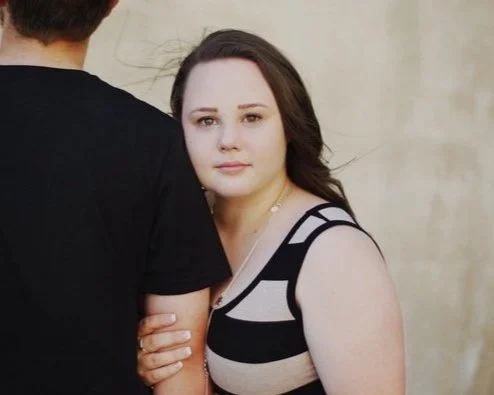Memory loss may not be the first thing that comes to mind when you think of posttraumatic stress disorder (PTSD). But if you or a loved one suffer from the condition, the impact to what and how you remember significant parts of your life, learn new things, and reason with others is a daily concern. Why is memory affected by PTSD?
How EMDR Helps Depression
EMDR research started with its use for PTSD treatment. There has been evidence showing positive outcomes with other psychological issues. Depression stems from negative or overwhelming life experiences. Some of these experiences can also be traumatic. So the tie-in here can be significant. Being able to identify the cause of the depression and reprocess how a person deals with those experiences can be helpful in overcoming the negative aspects.
How EMDR Helps Anxiety
What is Unknown Anxiety? 5 Ways to Embrace the Gifts
Unknown anxiety present one of the main threats to our nervous system regulation, so learning to companion and soothe ourselves in the face of unknowns can be hugely supportive to our well- being. Unknown anxiety show up in all kinds of ways. One type is the relational unknown, such as feeling uncertain about how our partner feels, how to communicate with our friend, or how others might feel about us. Another is the unknown about the future of our own lives
Unpacking Religious Trauma: 5 Ways to Start the Journey
6 Ways to Begin Recovery From Emotional Trauma
Emotional trauma can impact anyone and occur at any time. Whether it is something you have recently experienced or something that has been packed away, it is quite possible to feel sad, anxious, overwhelmed, or unhappy. While there is no clear-cut time frame for healing, knowing that you can move forward and regain your power is important. Here are six ways that you can begin your recovery process.
Is EMDR Right for Those Without Trauma?
The way EMDR and many other therapies now conceptualize trauma is with a much broader scope than traditionally thought. It isn’t just limited veterans who have seen combat or people who were abused as children - though those experiences certainly qualify as trauma and often result in a PTSD diagnosis.
5 Ways IFS Therapy Treats Trauma
Do you believe that we are all made of different parts? After all, not everyone is all bad or all good. Human beings have a combination of helpful and harmful amounts of themselves. Unfortunately, trauma has a way of bringing out the worst in us. INTERNAL FAMILY SYSTEMS (IFS) is a type of therapy that helps you discover who you are and bring all of these parts together. The three main parts include: Exiles, Managers and Firefighters.
4 Ways Trauma Bonding Negatively Impacts Your Relationships
Unfortunately, when two people have a traumatic history in a relationship, it can create something called “trauma bonding.” It can even happen in your relationships with family members or friends. It’s easy for abusers to shift the perspective of their victims, often using gaslighting techniques. They can get you to change the way you view what happened, or what continues to happen. Instead of recognizing that you’re the victim, they can end up making you feel like you’re the one to blame.
Letting Go of the Past: Finding Healing from Relationship Trauma
The emotional scars that you are carrying from relationship trauma can be hard to heal from. If you have been betrayed once, you are also expecting future betrayals. You may run away from relationships with people who care about you for fear of getting hurt again. But it is important to know that you can heal no matter how long it takes. That not everyone in the world is bad for you.
What is Enmeshment? 5 Telltale Signs
If you feel like people in your life are excessively involved in your life, this is enmeshment. Whether this is your romantic partner or a family member, enmeshment is when people are involved in your activities and personal things to an excessive degree. If you do not know if your partner is being excessive, it helps to know what the behavior patterns entail.
Here are the five telltale signs of enmeshment.
How to Deal with Vicarious Trauma
Can trauma occur if something terrible has happened to someone else? This is called vicarious trauma. If you see or hear stories of people going through tragedies it can cause a different perspective of the world you once thought was safe. You feel various emotions, from anxiety to guilt, hopelessness, or numbness. Serving Boulder, Longmont, Denver.
Betrayal Trauma: What it is and How to Heal
Betrayal trauma is the emotional impact of your experience after your trust or well-being is violated. It is most often experienced in attachment relationships, like caregivers and children, or in romantic partnerships. You have to continue to rely on the betrayer for support, care, shelter, or other basic needs. These experiences of betrayal can be so traumatic that you feel you will never want to trust anyone again.
Boulder's Mass Shooting & the Marshall Wildfire: Coping with PTSD
Recovering from your PTSD is not a solitary journey. If you are tempted to compare your recovery (or will to recover) to that of your neighbors or other witnesses, don't. That just compounds your distress with guilt and shame. Your losses are real and there's a very real and productive way forward. PTSD treatment is made for times like these. Serving Boulder, Longmont, Denver...
How EMDR Helps Relieve Trauma Stored the Body
Trauma can get stuck in your nervous system in a multisensory way. You hear, see, and feel things when you recall the event or become triggered in some way. Some of the memory is real mixed with things you imagine. Regardless, your body holds it all in your nervous system in an unfinished, unresolved state.
Do You Have Generational Trauma?
The concept of generational trauma is built upon the reality that trauma sets into motion certain genetic processes. If, for example, your grandparent endured trauma, it's quite possible that you will feel the impact. You may feel symptoms. You may inherit coping mechanisms. The possibilities appear to be endless. Therefore, the impacts are equally endless. How can we manage such a covert legacy?
Key Ways Racial Identity and Mental Health are Linked
If you are a person of color, you may be coping with racial realities in ways many minority communities have for ages; family, spiritual practice, activism and outreach often help. Yet, weathering waves of anxiety, mistreatment, and the daily effort of relational and systemic challenges requires specific and support you can trust.
How EMDR Treatment Can Bring Frontline Workers Relief
What is the Role of PTSD Avoidance? And What are the Risks?
How to Break a Trauma Bond. What are the Signs?
What’s a trauma bond? This sort of connection is actually a relationship shaped by unreliable, inconsistent reinforcement patterns. Promises are broken. Calm periods don't last. ”Out-of-nowhere” intensity and negativity always follow. Everything seems complicated and erratic. Anxiety is an integral part of your interactions (or lack thereof).





















